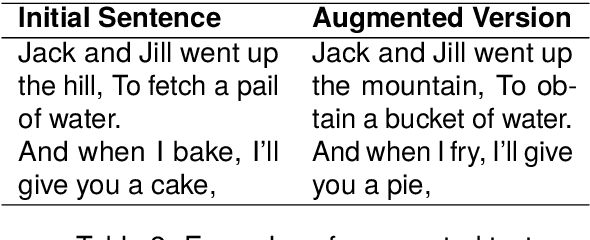Sampath Lonka
Revisiting The Classics: A Study on Identifying and Rectifying Gender Stereotypes in Rhymes and Poems
Mar 25, 2024



Abstract:Rhymes and poems are a powerful medium for transmitting cultural norms and societal roles. However, the pervasive existence of gender stereotypes in these works perpetuates biased perceptions and limits the scope of individuals' identities. Past works have shown that stereotyping and prejudice emerge in early childhood, and developmental research on causal mechanisms is critical for understanding and controlling stereotyping and prejudice. This work contributes by gathering a dataset of rhymes and poems to identify gender stereotypes and propose a model with 97% accuracy to identify gender bias. Gender stereotypes were rectified using a Large Language Model (LLM) and its effectiveness was evaluated in a comparative survey against human educator rectifications. To summarize, this work highlights the pervasive nature of gender stereotypes in literary works and reveals the potential of LLMs to rectify gender stereotypes. This study raises awareness and promotes inclusivity within artistic expressions, making a significant contribution to the discourse on gender equality.
San-BERT: Extractive Summarization for Sanskrit Documents using BERT and it's variants
Apr 04, 2023Abstract:In this work, we develop language models for the Sanskrit language, namely Bidirectional Encoder Representations from Transformers (BERT) and its variants: A Lite BERT (ALBERT), and Robustly Optimized BERT (RoBERTa) using Devanagari Sanskrit text corpus. Then we extracted the features for the given text from these models. We applied the dimensional reduction and clustering techniques on the features to generate an extractive summary for a given Sanskrit document. Along with the extractive text summarization techniques, we have also created and released a Sanskrit Devanagari text corpus publicly.
 Add to Chrome
Add to Chrome Add to Firefox
Add to Firefox Add to Edge
Add to Edge